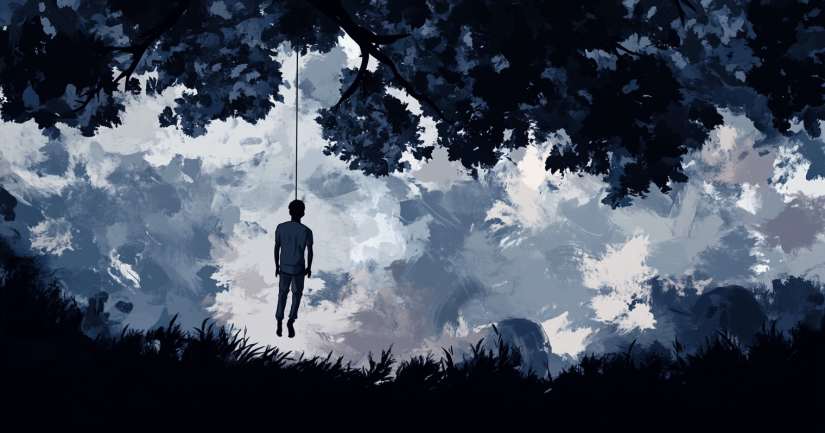
Delve into the story’s resolution with our Things Fall Apart Chapter 25 Quiz. Dive into the heart of Achebe’s powerful narrative. This quiz will guide you through the rich tapestry of themes and characters in the final chapter. You’ll explore Okonkwo’s world and the choices he faces. As you answer each question, you’ll uncover insights into his struggles and the cultural shifts he endures.
Achebe’s vivid storytelling captures the clash between tradition and change. Through this quiz, you will reflect on the impact of colonialism and its effects on Igbo society. Each question will challenge you to think critically about the text’s underlying messages.
You’ve reached the final chapter, but the learning doesn’t stop here! If you want to refresh your memory on how it all started, take the Things Fall Apart Chapter 1 Quiz. Need to revisit the chapter leading up to this moment? Check out Things Fall Apart Chapter 24 Quiz. And if you’re ready for the ultimate test, take on the Things Fall Apart Full Book Quiz!
Embrace the journey of discovery as you analyze Okonkwo’s actions and the novel’s poignant ending. This chapter invites you to ponder the complexities of identity and resilience. By participating, you will gain a deeper appreciation for the intricate layers woven into Achebe’s masterpiece.
Sharpen your understanding of this literary classic and see how well you can connect the dots. Let the quiz begin, and may your insights grow!
Things Fall Apart Quizzes: Dive into Igbo culture and colonial impact …
What Happened – Things Fall Apart Chapter 25
The District Commissioner arrives at Okonkwo’s compound with some court messengers. They want to arrest Okonkwo. The Commissioner is surprised to find a crowd gathered at the compound. Obierika, one of Okonkwo’s friends, leads the Commissioner and his men to a tree behind the compound. There, they find Okonkwo’s body hanging from the tree. Okonkwo has taken his own life.
Obierika is upset. He tells the Commissioner that Okonkwo was a great man. He blames the Commissioner and his men for Okonkwo’s death. The Igbo people cannot bury someone who has died by suicide. It is against their customs. Obierika asks the Commissioner to help with the burial.
The Commissioner agrees to help. He sends his men to cut down the body. He wants to write about the event in his book. He thinks it will make an interesting story. He considers including it as a small part of a chapter.
The villagers and the Commissioner’s men work together to take down Okonkwo’s body. The Commissioner is more interested in his book than in Okonkwo’s death. The chapter ends with the Commissioner planning to write about the incident. He thinks it will be a good addition to his book about Nigeria.
Things Fall Apart Chapter 25 – Quotes
- “I cannot live in a world where there is no longer a place for me.” – Okonkwo, ‘Faced with the irreversible changes brought by colonial forces, Okonkwo struggles with his identity and place in society.’
“He has put a knife on the things that held us together and we have fallen apart.” – Obierika, ‘Reflecting on the devastating impact of colonialism on Igbo society and its traditions.’
“You drove him to kill himself; and now he will be buried like a dog.” – Obierika, ‘Accusing the District Commissioner of pushing Okonkwo to suicide, exposing the tragic consequences of cultural conflict.’
“Perhaps not a whole chapter but a reasonable paragraph.” – District Commissioner, ‘Contemplating how Okonkwo’s story will be reduced in his book on African tribes, illustrating colonial arrogance and misunderstanding.’
Things Fall Apart Chapter 25 – FAQ
Chapter 25 serves as the culmination of the novel, highlighting the tragic downfall of the protagonist, Okonkwo. It underscores the clash between traditional Igbo society and the colonial forces, illustrating the impact of cultural disruption and personal despair.
Okonkwo’s fate in Chapter 25 mirrors the themes of change, conflict, and resistance. His tragic end symbolizes the broader disintegration of Igbo society under colonial influence and the personal struggle against a rapidly changing world.
The District Commissioner represents colonial authority and indifference. His decision to write a book about his experiences, reducing Okonkwo’s life to a mere paragraph, signifies the disregard for the rich complexity of Igbo culture and individuals.
The narrative style in this chapter is stark and detached, emphasizing the emotional distance and cultural misunderstanding between the colonizers and the Igbo people. This approach invites readers to reflect on the loss of identity and autonomy experienced by the characters.
The ending is impactful because it encapsulates the novel’s exploration of cultural collision and personal tragedy. Okonkwo’s demise and the dismissive attitude of the colonial powers highlight the profound and irreversible changes imposed on traditional societies, leaving a lasting impression on the reader.
